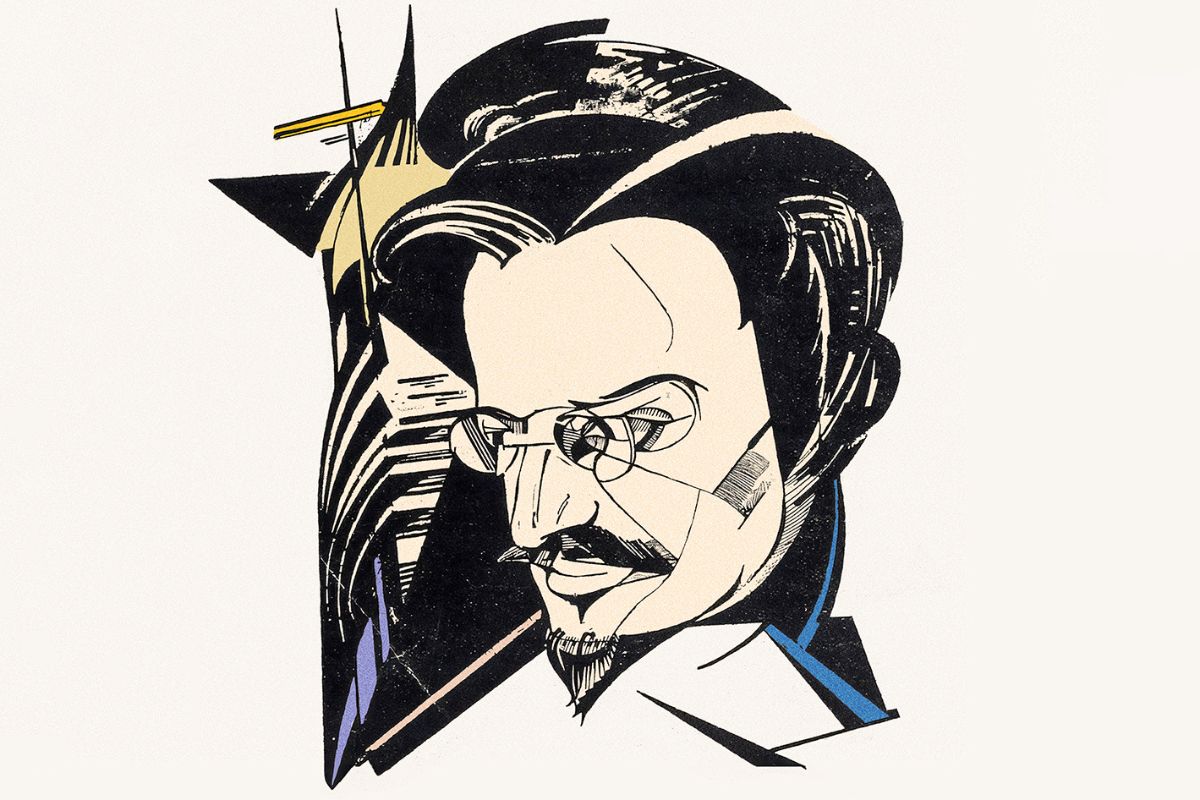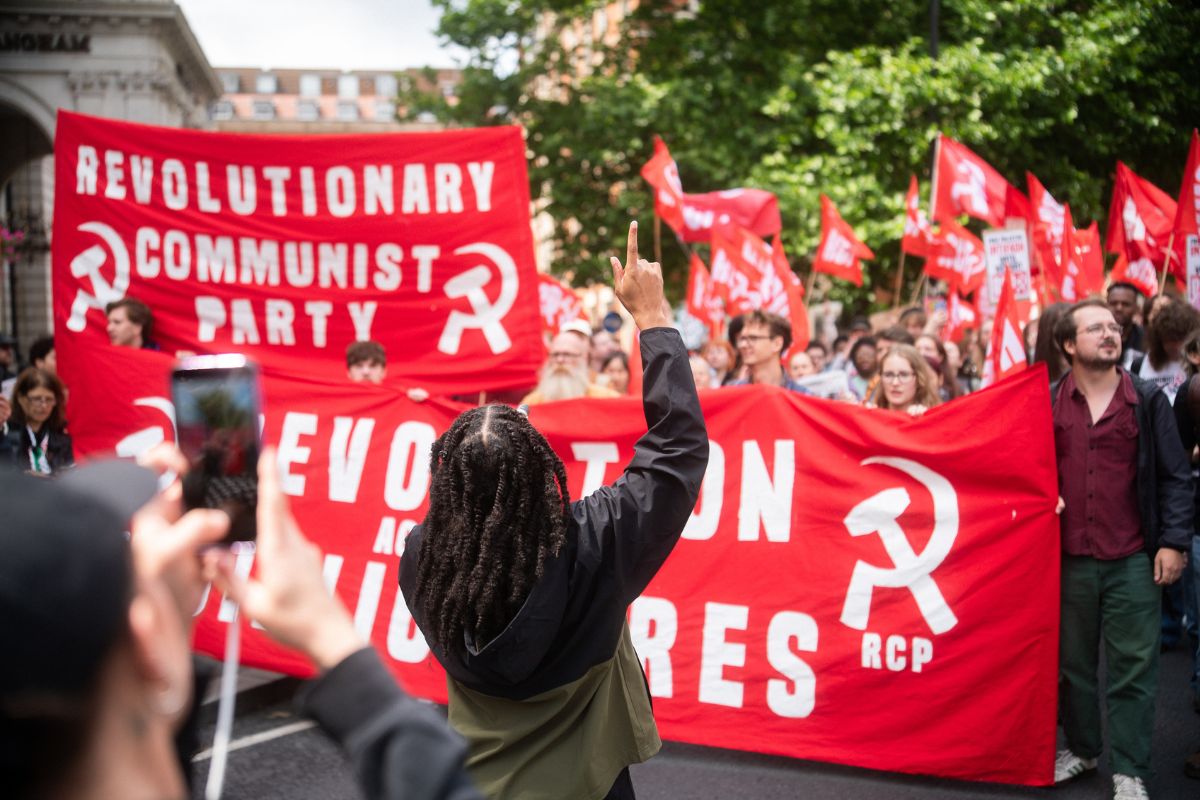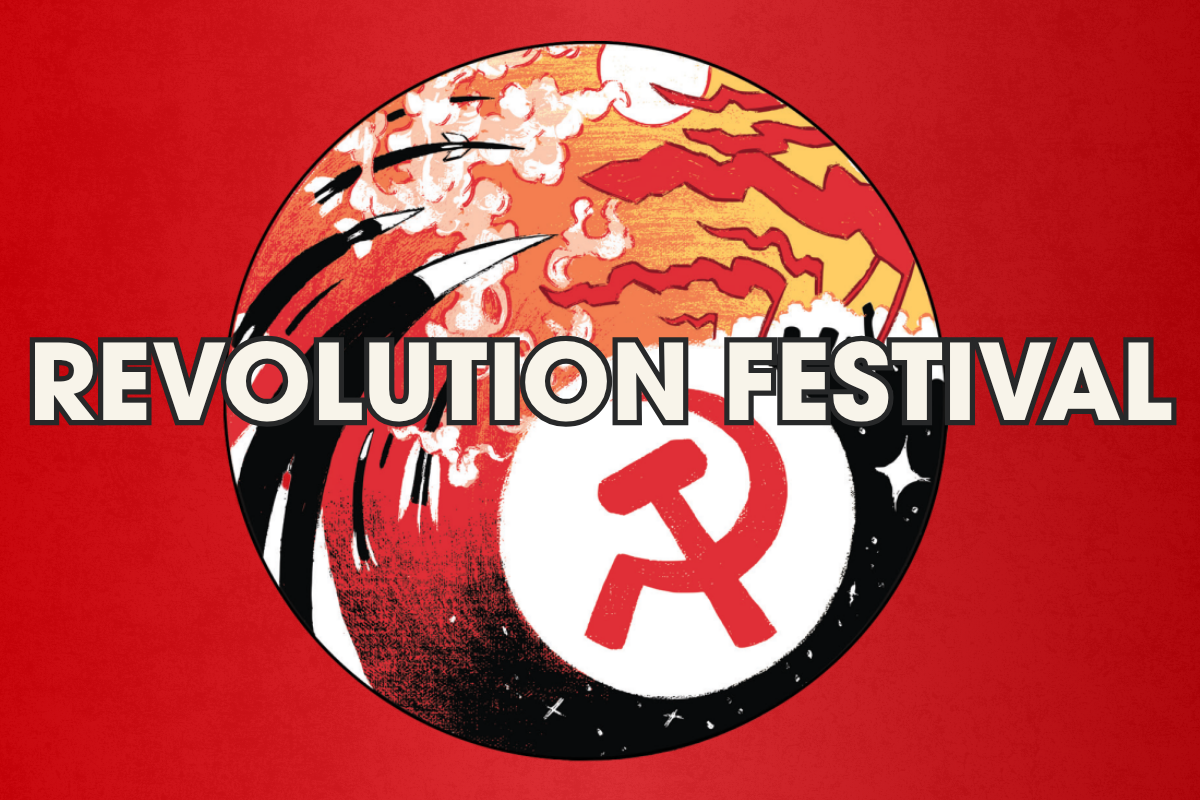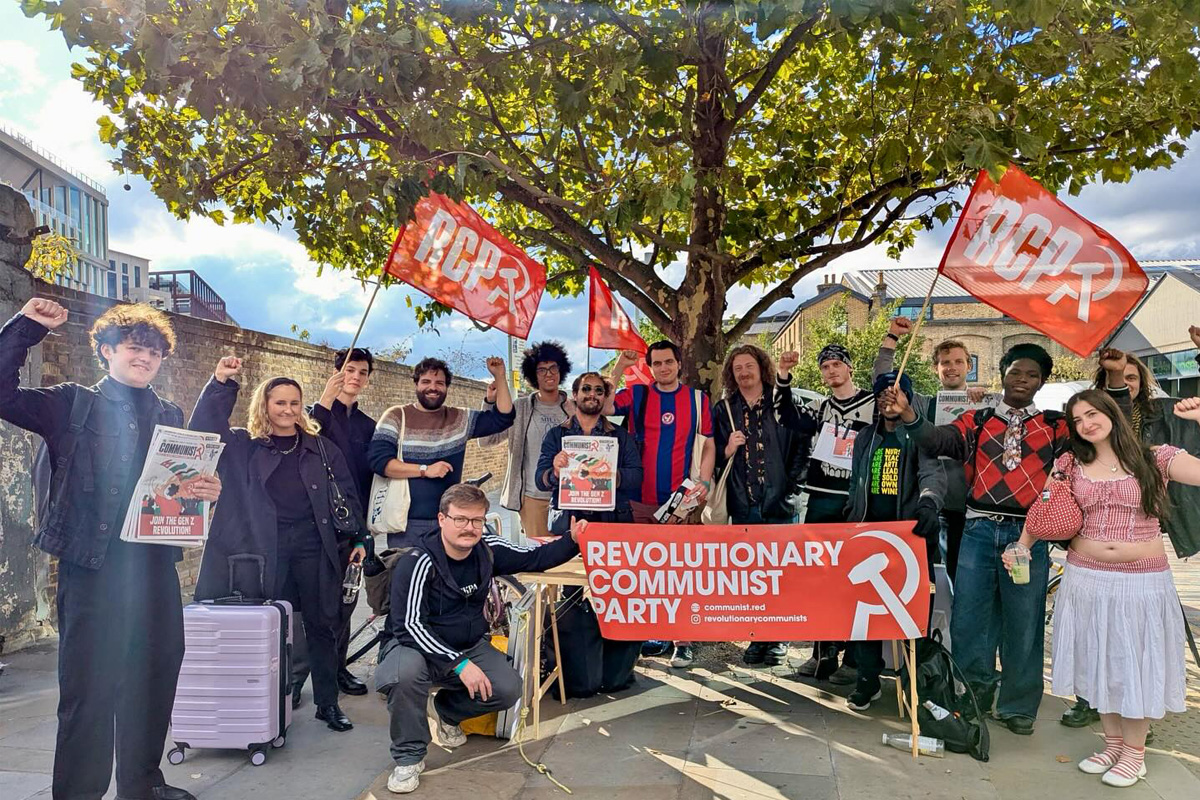The theory of permanent revolution stands alongside Lenin’s theory of imperialism as one of the most important contributions to Marxism since the deaths of Marx and Engels. Accordingly, in this issue of In Defence of Marxism we are proud to publish a number of articles which explore this concept in some depth.
[We publish here the editorial of issue 51 of ‘In Defence of Marxism’ magazine – the quarterly theoretical journal of the Revolutionary Communist International. Get your copy now!]
First used by Marx in 1850, the term ‘permanent revolution’ has become synonymous with the name of Leon Trotsky, who developed his ideas in the wake of the 1905 Revolution in Russia.
Therefore, any discussion of the permanent revolution inevitably raises the question of so-called ‘Trotskyism’. But what does Trotskyism mean, if it has any meaning at all? And what relevance does it have today, 85 years after Trotsky’s assassination?
View this post on Instagram
The truth is concrete
Trotskyism is often presented simply as anti-Stalinism. But this could describe a variety of tendencies, most of which have nothing at all to do with Trotsky’s ideas.
The real content of Trotskyism does not lie in what it opposes, but what it puts forward. Any consideration of Trotskyism must therefore proceed from the essential principles that defined Trotsky’s life as a revolutionary.
The first and most fundamental of these principles is Trotsky’s approach to the philosophical method of Marxism: dialectics. As he wrote in 1939:
“Dialectic training of the mind, as necessary to a revolutionary fighter as finger exercises to a pianist, demands approaching all problems as processes and not as motionless categories.”[1]
In politics, as in life, we are accustomed to hearing and using certain ideas, such as ‘democracy’, ‘dictatorship’, ‘capitalism’, ‘socialism’, and so on. In addition, Marxist theory has developed its own scientific vocabulary in order to convey more specific concepts, such as ‘bourgeois revolution’, ‘workers’ state’, ‘bonapartism’, and others.
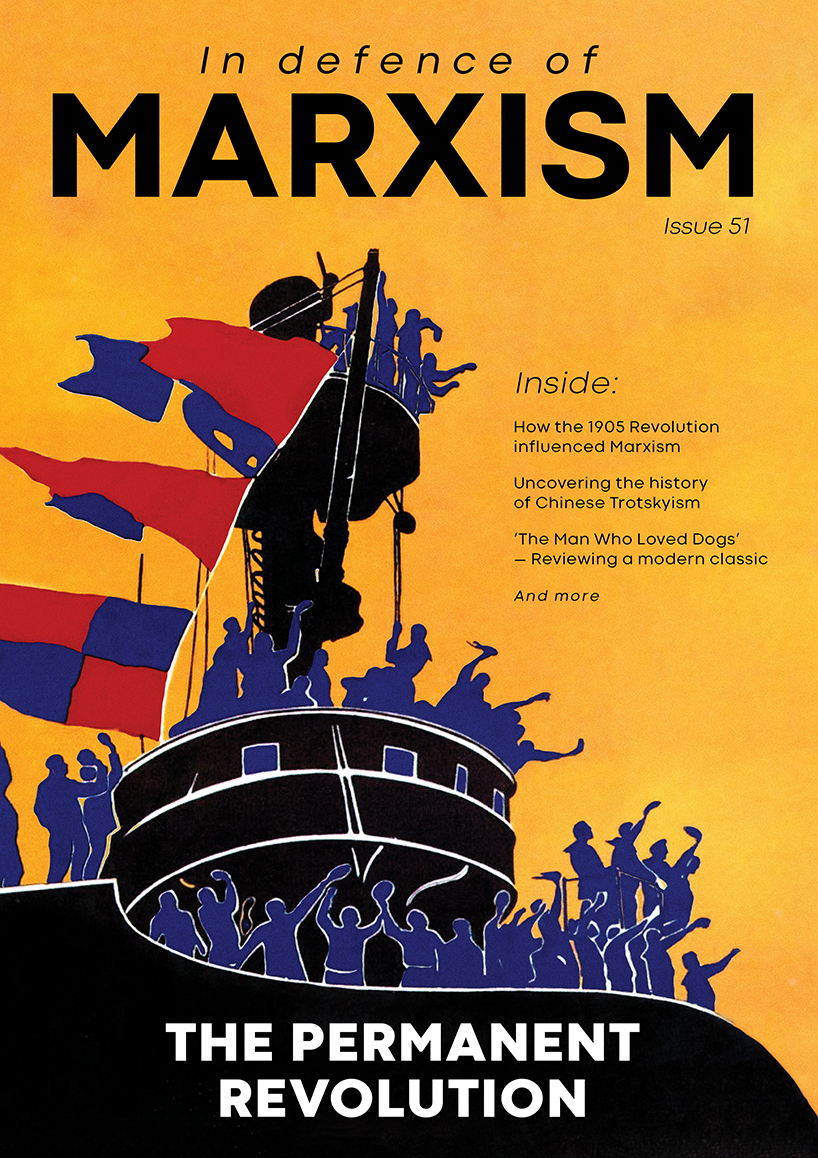
All of these categories are drawn from reality, and offer valuable tools for understanding society as it develops. However, by virtue of the fact that they draw out one particular aspect of phenomena, each of these categories necessarily has a certain abstract quality, especially when compared with living reality, which is immeasurably many-sided and complex.
For instance, most people would be familiar with the category ‘capitalism’, and that almost all of the economies in the world today could be classified as capitalist. Further, most people would agree that by virtue of being capitalist, all such states would have certain common characteristics, and be subject to common laws or tendencies.
But can we conclude from this that all capitalist economies are identical; that all develop in exactly the same way and at the same pace? And if a society does not fit the general picture sketched by our theoretical conception of capitalism, does that mean it therefore cannot be capitalist at all?
To reason in such a way would be to fall into the trap of formalism, of taking one’s starting point from general categories and definitions, deducing particular conclusions from these, and then seeking to impose them on the observed facts. This approach is all too common in politics, and often leads to serious errors.
In reality, unlike our ideas and categories, nothing is ever static or isolated. All things are interconnected, and in a constant process of coming into being and passing away, and of turning into their opposite: from dead to living matter; from stability and progress to crisis and decline… and vice versa.
Dialectical logic is the most powerful tool developed by human beings to capture this reality in thought, enriching our concepts and categories with the flexibility and concreteness they require to serve as a guide to action. As Trotsky put it:
“Dialectical thinking is related to vulgar thinking in the same way that a motion picture is related to a still photograph. The motion picture does not outlaw the still photograph but combines a series of them according to the laws of motion.”[2]
And in all of Trotsky’s writings and speeches you can detect a constant polemic against all kinds of formalism, schematism and the unthinking repetition of phrases.
Dialectical analysis
In 1906, almost 20 years before the debates with Stalin, Trotsky waged a theoretical struggle against the Menshevik wing of the Russian Social Democrats, who had converted the concepts of Marxism into a stale formula of ‘stages’.
The Mensheviks started from the principle, accepted by all Marxists at the time, that Russia was facing a ‘bourgeois revolution’. However, from this bare category they argued that the bourgeoisie must therefore first establish a capitalist democracy, similar to the western countries. Only after an unspecified period of capitalist development would Russia then become ripe for the socialist revolution.
As Trotsky argued, this was completely alien to the real method of Marx and Engels. What was required instead was a concrete analysis of the real strengths and interests of the various classes that were actually living inside Russia at that time. The product of his dialectical analysis was the theory of permanent revolution.
Trotsky explained that the actual Russian bourgeoisie had no interest in overthrowing tsarism and landlordism. Therefore, the bourgeois-democratic revolution could only be completed if the working class seized power at the head of an alliance with the peasantry. But the working class would clearly not limit itself to establishing a bourgeois republic. The bourgeois revolution would thus ‘grow over’ into the socialist revolution.
Trotsky’s theory was completely confirmed by the experience of the Russian Revolution and the seizure of power by the soviets in October 1917. And the logic of the permanent revolution can be seen in revolutions all over the world ever since: from Vietnam to Venezuela, from Syria to Sudan, and beyond.
In defence of Marxism
Trotsky waged the same struggle against the self-proclaimed inheritors of Lenin’s legacy, such as Stalin and Bukharin, who combined a short-sighted adaptation to the ‘accomplished facts’ of the moment with an extremely formalistic, scholastic approach to Marxist theory.
“He who operates in the domain of theory with abstract categories is condemned to capitulate blindly to facts”, warned Trotsky.[3]
Thus, after the revolutionary wave that followed the First World War had subsided, Stalin announced the brand-new theory of ‘socialism in one country’ in the autumn of 1924. According to this theory, the USSR could construct the new socialist order entirely within its own borders, without the need for the working class to take power in the advanced capitalist countries.
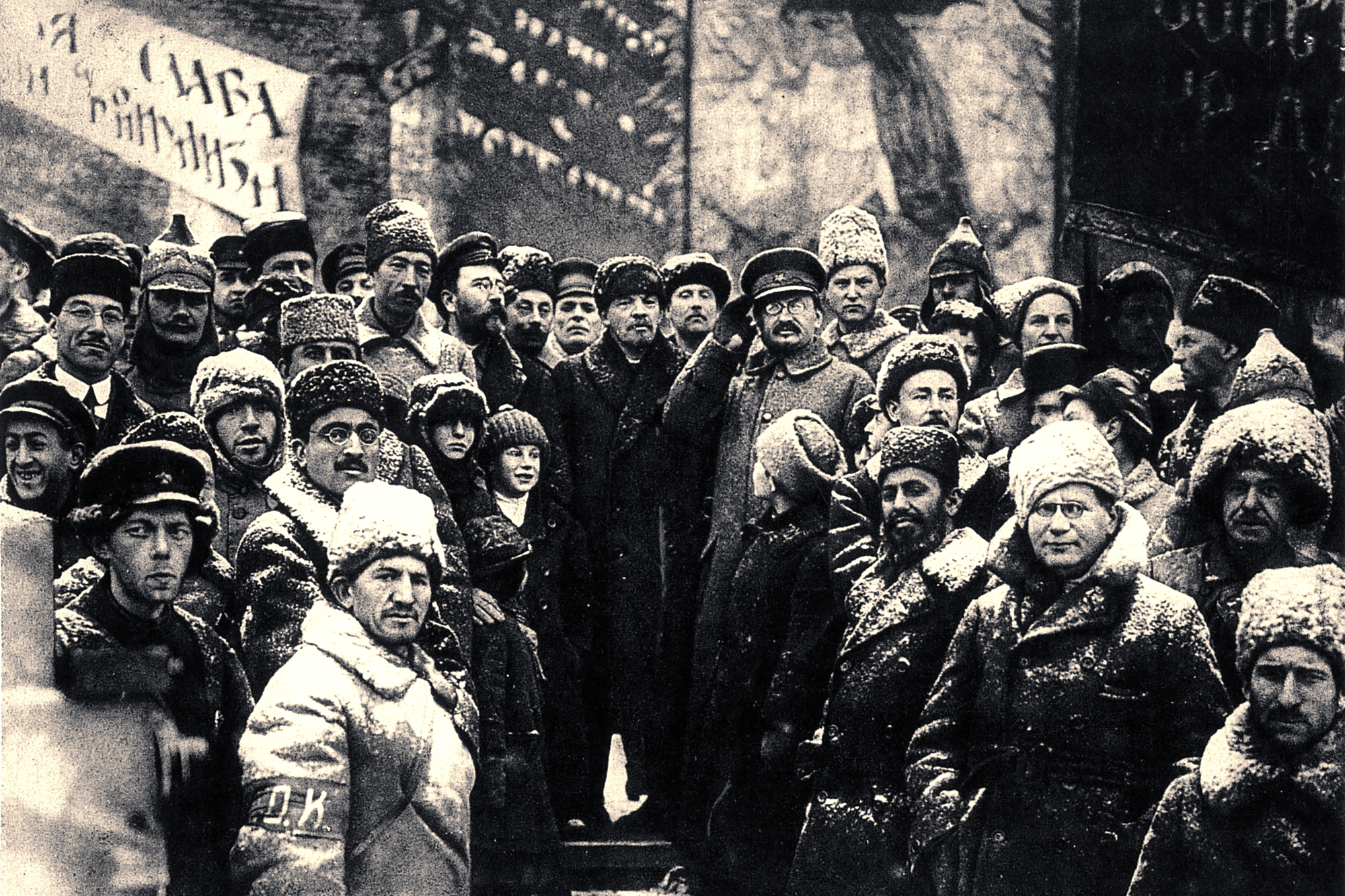
Trotsky, who opposed this revision of one of the basic principles of Marxism, was accused of “pessimism”, and believing the revolution was “doomed to fail”. Why? Because, Stalin argued, if socialism could not be built in Russia then, “We should not have taken power in October 1917” [emphasis in original][4].
In this, Stalin and his collaborators repeated exactly the same argument of the Mensheviks. But while the Mensheviks used this formalistic reasoning to conclude that the workers should not have taken power, the Stalinists simply flipped their logic on its head: because the workers had taken power, therefore they must be able to build socialism.
This Menshevik method naturally resulted in Menshevik politics. Accordingly, the Chinese Communists were ordered to submit to the discipline of a bourgeois nationalist party, the Kuomintang, on the grounds that China was facing a ‘national-bourgeois revolution’.
This approach would lead to a series of defeats and crises, both at home and abroad. But even when the Soviet government abruptly changed course in 1928, its formalism remained constant.
The most striking proof of this can be seen in the infamous theory of ‘social-fascism’: both the fascists and social democrats support capitalism; therefore social democracy is simply the ‘moderate wing’ of fascism. Not only that, it was declared “the main pillar of the dictatorship of capital”.[5]
The practical outcome of this so-called ‘theory’ was the division and paralysis of the working class, leading to the victory of Hitler.
Once again, the Communist International was forced to change tack. But with each about-turn in policy came a new revision of Marxism, complete with a new set of ‘quotations’ from Lenin, torn out of context and tortured to demonstrate that the leadership had been correct ‘in general’, both before and after the switch.
This ‘re-education’ of the ranks was then carried out by means of slanders, expulsions and even murder. The effect of all this was not only to eradicate all Marxist thought from the ranks of the Communist International, but all thought of any kind, beyond slavish adherence to the ‘party line’.
Trotsky’s opposition to these ideas did not simply arise out of disagreements over the policy of the Soviet government, and least of all from any kind of personal power struggles and intrigues; it was a struggle to defend the living essence of Marxism itself.
But Trotsky’s struggle was not limited to a defence of Marxism against the Stalinists. He would later wage a similar struggle against those who had rallied to the banner of the International Left Opposition from their own anti-Stalinism, without ever having truly absorbed the ideas and methods of Marxism.
Under the enormous pressure of bourgeois public opinion, a layer of the Trotskyists in the West opposed Trotsky’s unconditional defence of the USSR in the Second World War. They argued that it could no longer be considered a workers’ state, transitional between capitalism and socialism, due to the vicious dictatorship and reactionary policies of the Stalinist bureaucracy.
It is significant that some of the richest writings of the last years of Trotsky’s life were devoted, not only to a political rebuttal of this essentially petty-bourgeois retreat from Marxism, but to a militant defence of the philosophical basis of Marxism itself. In the course of this debate, Trotsky gave a masterclass in dialectics:
“Sociological problems would certainly be simpler, if social phenomena had always a finished character. There is nothing more dangerous, however, than to throw out of reality, for the sake of logical completeness, elements which today violate your scheme and tomorrow may wholly overturn it. […] The scientific task, as well as the political, is not to give a finished definition to an unfinished process, but to follow all its stages, separate its progressive from its reactionary tendencies, expose their mutual relations, foresee possible variants of development, and find in this foresight a basis for action.”[6]
This method would provide an unerring guide for Trotsky throughout his entire life as a Marxist revolutionary.
Principles of Bolshevism
Flowing directly from his Marxist method, another constant in all of Trotsky’s writings and political activity is the strengthening of the independence, class consciousness and internationalism of the proletariat.
What, after all, is the practical political conclusion of the permanent revolution? That, whilst taking into account the unique objective circumstances present in each country, all communists should strive to maintain the political independence of the proletariat, and to raise its consciousness and organisation to the direct conquest of power at the head of all the oppressed.
This is also what was meant by Marx’s own use of the term. And it was these “revolutionary illusions” that were attacked under the name of ‘Trotskyism’, when the term was first coined by the Russian Liberal, Pavel Miliukov, in 1907.[7]
This was also the basic political content of Trotsky’s struggle to defend the traditions of Bolshevism after the death of Lenin.
It is not a coincidence that the term ‘Trotskyism’ entered into mass circulation after Lenin’s death in 1924. At that time, the rising bureaucracy of the Soviet Union was turning away from the world revolution, and towards an accommodation with the wealthier layers of the peasantry at home and foreign capitalism abroad.
Against this, Trotsky fought for the economic strengthening of the working class in the USSR; the political strengthening of the workers’ position in the soviets and inside the Communist Party itself; and the strategic goal of spreading the revolution internationally. This amounted to nothing other than the defence of the fundamental programme of the Bolshevik Party in 1917, and the founding principles of the Soviet Union.
In this context, the ‘troika’ of Stalin, Zinoviev and Kamenev, eagerly seized on the term ‘Trotskyism’ in order to artificially create a dividing line between Trotsky’s and Lenin’s ideas. All of a sudden, in late-1924, a flurry of articles appeared in the Soviet press, all defending ‘Leninism’ against ‘Trotskyism’.
In reality, no such division existed between Trotsky and Lenin. Lenin had even said that after Trotsky had rejected conciliation with the Mensheviks “there has been no better Bolshevik”.[8]
Trotsky never liked the term ‘Trotskyism’. Not for nothing did Trotsky describe the campaign against ‘Trotskyism’ as “a fight against the ideological legacy of Lenin”.[9] For this reason, Trotsky and his followers referred to themselves not as Trotskyists but as ‘Bolshevik-Leninists’ to emphasise this connection.
Smash all obstacles
It is important to stress that this was not just an intellectual struggle. Trotsky’s theoretical and political principles were bound together by an indomitable revolutionary determination, which itself forms an essential feature of Marxism. As Trotsky himself remarked:
“You can have revolutionaries both wise and ignorant. But you can’t have revolutionaries who lack the willingness to smash obstacles.”[10]
Communists often repeat Lenin’s profound statement that “Marxism is all-powerful because it is true”.[11] But it is also necessary to draw the necessary practical conclusions. Marxism demands that we not only seek the truth, and speak the truth, but do what the truth requires, no matter the resistance and difficulties that we encounter. This is what revolutionaries are made of.
Trotsky spent his entire life pursued and chased into exile, first by the tsarist authorities, later by the Stalinists. Denied entry by the enlightened ‘democracies’, Trotsky was forced to the other side of the world. His family was hunted down and killed, and he lived under constant threat of assassination.
No matter how overwhelming the pressure, he never relented.
You can see the same determination in the life of Marx, and many other revolutionaries throughout history; you can see it in the valiant struggle of the Left Oppositionists inside the USSR, who sang the Internationale whilst being marched to their executions during the Great Purge; and in the thousands of Bolshevik-Leninists around the world, who devoted their lives to building the forces of genuine Marxism, often under threat of severe repression.
Against sectarianism
However, Trotsky’s implacable defence of the fundamental principles of Bolshevism never degenerated into sectarianism. He always showed a keen understanding of the need to connect the programme of the socialist revolution to the real, living struggle of the masses.
Trotsky explicitly linked the struggle against sectarianism in action to the struggle against formalism in theory:
“Though he may swear by Marxism in every sentence, the sectarian is the direct negation of dialectical materialism, which takes experience as its point of departure and always returns to it.”[12]
He endeavoured to pass on the correct method to the Fourth International, including a damning description of sectarianism in its founding programme:
“These sterile politicians generally have no need of a bridge in the form of transitional demands because they do not intend to cross over to the other shore. They simply dawdle in one place, satisfying themselves with a repetition of the same meagre abstractions. Political events are for them an occasion for comment but not for action. Since sectarians, as in general every kind of blunderer and miracle-man, are toppled by reality at each step, they live in a state of perpetual exasperation, complaining about the ‘regime’ and the ‘methods’ and ceaselessly wallowing in small intrigues. In their own circles they customarily carry on a regime of despotism.”[13]
He concluded with a stark warning:
“He who does not seek and does not find the road to the masses is not a fighter but a dead weight to the party. A programme is formulated not for the editorial board or for the leaders of discussion clubs, but for the revolutionary action of millions. The cleansing of the ranks of the Fourth International of sectarianism and incurable sectarians is a primary condition for revolutionary success.”[14]
Tragically, Trotsky was not allowed to complete this, his last struggle. A Stalinist agent deprived the Fourth International movement of its outstanding leader with a cowardly blow to the back of the head on 20 August 1940.
The leaders that inherited the International emerged from the chaos and the carnage of the war into a world that had drastically changed. Without the firm theoretical guidance of the ‘Old Man’, not one of them proved capable of crossing the threshold between the previous period and the new situation that was opening up, either in thought or in deed.
As Trotsky had warned, the result was the degeneration of the Fourth International into a myriad of irrelevant, squabbling sects. Here this calls on us to say something about what Trotskyism is not.
Not one of the organisations which today claim the name of the Fourth International have anything to do with the real ideas and methods of Trotsky. Rather, they are at best a pernicious caricature, whose sole contribution to the movement has been to discredit the name of Trotskyism amongst wide layers of the working class.
Trotsky’s legacy
The Fourth International was destroyed, but the essence of Trotskyism lives on. It survives in the continuation of the genuine ideas of Marxism and the traditions of the Bolshevik Party under Lenin, which remain as relevant and as necessary today as when the Fourth International was founded in 1938.
At that time, Trotsky wrote: “The historical crisis of mankind is reduced to the crisis of the revolutionary leadership.”[15] These words are as true today as when they were written.
The international communist movement is in complete disarray. Many self-proclaimed ‘Marxist’ parties have degenerated into reformist parties, insignificant sects, or have disappeared from the scene altogether. Meanwhile millions of people around the world are looking for answers, and not only that; they are looking for a movement, a banner to rally to.
Trotsky’s greatest achievement is that he maintained the clean banner of Marxism, and held it aloft amidst all the horror and apostasy that confronted him. Let us take up that banner, and use it to build a worldwide party of social revolution, capable of leading the working class, at last, to victory.
References
[1] L Trotsky, ‘A Petty-Bourgeois Opposition in the Socialist Workers Party’, In Defence of Marxism, Wellred Books, 2019, pg 73
[2] ibid. pg 70-71
[3] L Trotsky, ‘Bonapartism and Fascism’, Democracy, Bonapartism and Fascism, Wellred Books, 2025, pg 148
[4] J Stalin, Problems of Leninism, Foreign Languages Press, 1976, pg 217
[5] Resolution of the Central Committee of the Communist Party of Germany, quoted in J Braunthal, Geschichte der Internationale: 1914–1943, Vol. 2, Dietz Verlag, 1963, pg 414, our translation
[6] L Trotsky, Revolution Betrayed, Wellred Books, 2022, pg 183
[7] P Miliukov, ‘The Elections to the Second State Duma’, quoted in L Trotsky, 1905, Penguin Books, 1971, pg 295
[8] L Trotsky, The Stalin School of Falsification, Pathfinder, 1972, pg 17
[9] L Trotsky, My Life, Wellred Books, 2018, pg 432
[10] L Trotsky, ‘How Revolutionaries are Formed’, Writings of Leon Trotsky [1929], Pathfinder, 1975, pg 192
[11] V I Lenin, ‘The Three Sources and Three Component Parts of Marxism’, Lenin Collected Works, Vol. 19, Progress Publishers, pg 21
[12] L Trotsky, ‘Sectarianism, Centrism and the Fourth International’, Writings of Leon Trotsky [1935-36], Pathfinder, 1977, pg 153
[13] L Trotsky, ‘The Transitional Programme’, Classics of Marxism, Vol. 1, Wellred Books, 2025, pg 269-270
[14] ibid. pg 270
[15] ibid. pg 224

